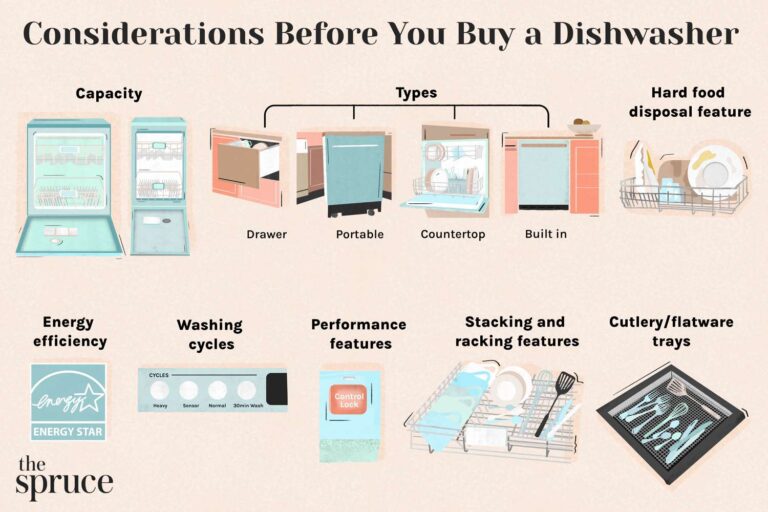Home Appliance Energy Consumption Guide: How to Save Money and the Planet
In today’s world, where energy costs are rising and sustainability is a growing concern, managing your home appliance energy consumption has never been more important. Whether you’re looking to reduce your utility bills or lower your carbon footprint, understanding how different home appliances consume energy is essential for making informed decisions. In this guide, we will walk you through the key aspects of home appliance energy consumption, offering practical tips on how to choose energy-efficient appliances, optimize their usage, and save money while contributing to a greener planet.
Understanding How Appliances Consume Energy: The Basics
Every appliance in your home uses energy, but some are more energy-hungry than others. Refrigerators, air conditioners, washers, and dryers tend to be the biggest consumers of electricity. The way appliances consume energy depends on their power ratings and usage frequency. For example, refrigerators run 24/7, while dishwashers and washing machines only operate a few times a week. By understanding how appliances consume energy, you can make smarter choices about what to use and when, ultimately cutting down on waste and reducing your monthly electricity bills.
Energy Efficiency Labels: What They Mean and Why They Matter
One of the easiest ways to assess an appliance’s energy consumption is by looking for its energy efficiency label, such as the Energy Star certification. These labels indicate that the appliance has been tested and meets strict energy efficiency standards. Energy-efficient appliances use less electricity to perform the same tasks, saving you money over time. When shopping for new appliances, make sure to prioritize models with high-efficiency ratings, as they consume less energy, are better for the environment, and may even qualify for rebates or tax incentives in some regions.
High-Energy Appliances: Which Ones to Watch Out For
Certain home appliances are known for their high energy consumption. These include heating and cooling systems, water heaters, and clothes dryers. For example, heating your home with electric baseboard heaters can be much more expensive than using a gas or heat pump system. Similarly, clothes dryers use a significant amount of energy to dry clothes quickly. If you’re looking to save on energy bills, consider replacing old or inefficient appliances with newer, more efficient models. Look for smart thermostats for better control of your heating and cooling, and opt for energy-efficient dryers that offer moisture sensors to avoid over-drying.
Optimizing Your Appliance Usage for Maximum Efficiency
Even the most energy-efficient appliances can consume unnecessary power if not used correctly. To optimize energy consumption, follow simple habits like setting your refrigerator temperature to 35–38°F, keeping your freezer at 0°F, and ensuring that your dishwasher is fully loaded before running it. Additionally, regularly clean and maintain appliances such as air conditioners, refrigerators, and washing machines to ensure they’re running efficiently. For example, cleaning the lint filter in your dryer can help it work more efficiently and reduce drying time. Small habits like these can have a big impact on reducing your home’s overall energy consumption.
The Future of Energy-Efficient Appliances: What’s on the Horizon
The future of home appliances looks promising, with more innovations aimed at improving energy efficiency. From refrigerators that use natural refrigerants to washing machines with ultra-low water consumption, appliance manufacturers are increasingly focusing on sustainability. Additionally, smart home technologies, such as energy-monitoring apps and systems, allow you to track and adjust your home’s energy usage in real time. As smart appliances become more affordable and widely available, you’ll have more opportunities to manage energy consumption and lower your carbon footprint, all while enjoying enhanced performance and convenience.
FAQs
1. How can I reduce my home appliance energy consumption? To reduce energy consumption, choose energy-efficient appliances, use them properly (e.g., don’t overload the washer or dryer), and regularly maintain them. Additionally, adjust thermostat settings, clean filters, and optimize usage patterns.
2. What appliances consume the most energy in a home? Heating and cooling systems, water heaters, and clothes dryers are typically the most energy-consuming appliances. Refrigerators and dishwashers also use a significant amount of energy, but they run more intermittently.
3. How do I know if an appliance is energy-efficient? Look for energy efficiency labels such as the Energy Star certification, which indicates that an appliance meets high energy-saving standards.
4. Are smart appliances worth the investment? Yes, while smart appliances can be more expensive upfront, they offer long-term savings by optimizing energy usage. They also allow for greater control, which can reduce waste and energy costs.
5. What are some easy changes I can make to save on energy bills? Simple changes include using appliances like dishwashers and washing machines during off-peak hours, setting the thermostat to energy-saving modes, and switching to energy-efficient bulbs. Additionally, upgrading to modern, energy-efficient appliances can make a big difference.



